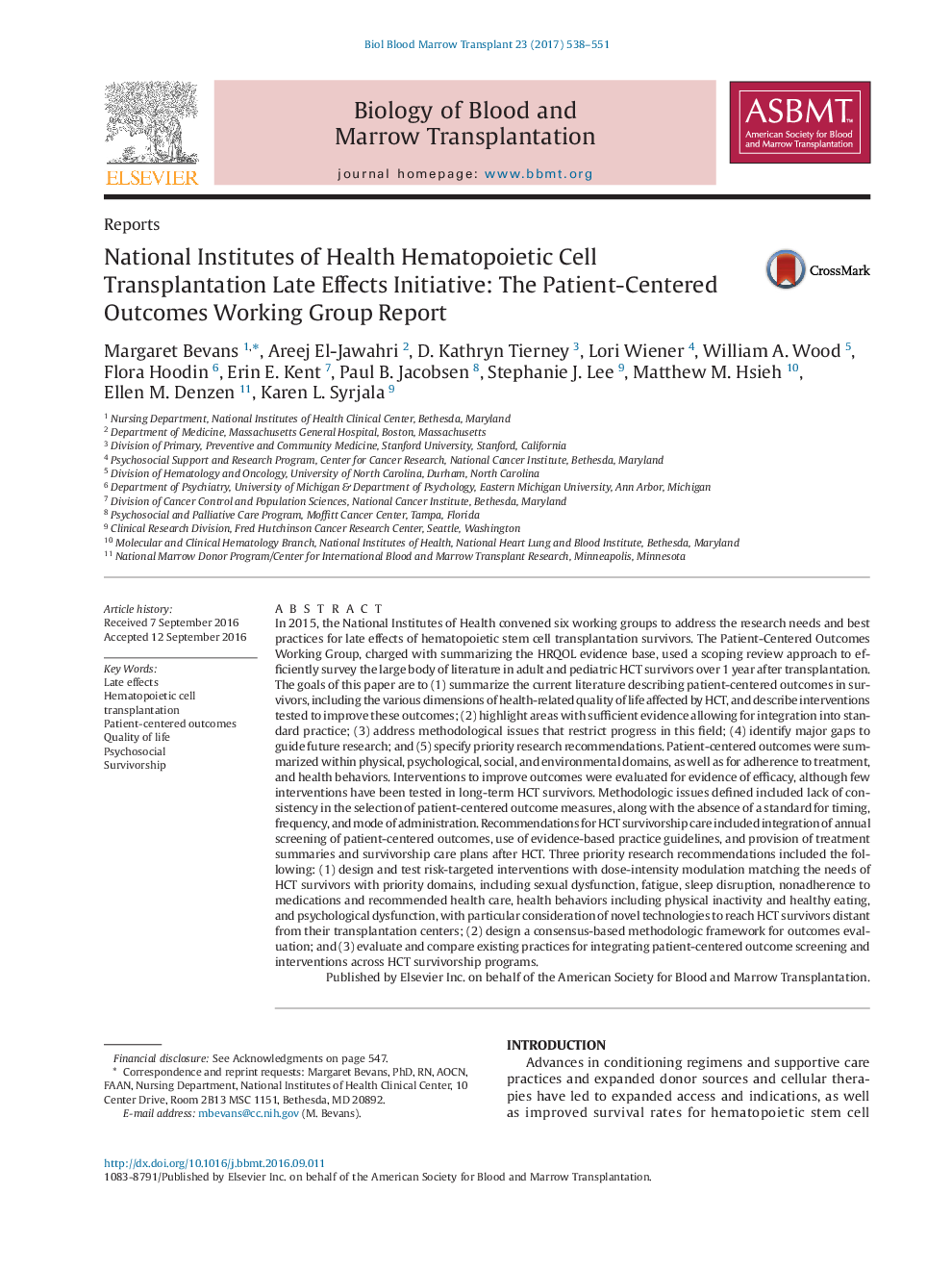| کد مقاله | کد نشریه | سال انتشار | مقاله انگلیسی | نسخه تمام متن |
|---|---|---|---|---|
| 5524408 | 1546242 | 2017 | 14 صفحه PDF | دانلود رایگان |
In 2015, the National Institutes of Health convened six working groups to address the research needs and best practices for late effects of hematopoietic stem cell transplantation survivors. The Patient-Centered Outcomes Working Group, charged with summarizing the HRQOL evidence base, used a scoping review approach to efficiently survey the large body of literature in adult and pediatric HCT survivors over 1 year after transplantation. The goals of this paper are to (1) summarize the current literature describing patient-centered outcomes in survivors, including the various dimensions of health-related quality of life affected by HCT, and describe interventions tested to improve these outcomes; (2) highlight areas with sufficient evidence allowing for integration into standard practice; (3) address methodological issues that restrict progress in this field; (4) identify major gaps to guide future research; and (5) specify priority research recommendations. Patient-centered outcomes were summarized within physical, psychological, social, and environmental domains, as well as for adherence to treatment, and health behaviors. Interventions to improve outcomes were evaluated for evidence of efficacy, although few interventions have been tested in long-term HCT survivors. Methodologic issues defined included lack of consistency in the selection of patient-centered outcome measures, along with the absence of a standard for timing, frequency, and mode of administration. Recommendations for HCT survivorship care included integration of annual screening of patient-centered outcomes, use of evidence-based practice guidelines, and provision of treatment summaries and survivorship care plans after HCT. Three priority research recommendations included the following: (1) design and test risk-targeted interventions with dose-intensity modulation matching the needs of HCT survivors with priority domains, including sexual dysfunction, fatigue, sleep disruption, nonadherence to medications and recommended health care, health behaviors including physical inactivity and healthy eating, and psychological dysfunction, with particular consideration of novel technologies to reach HCT survivors distant from their transplantation centers; (2) design a consensus-based methodologic framework for outcomes evaluation; and (3) evaluate and compare existing practices for integrating patient-centered outcome screening and interventions across HCT survivorship programs.
Journal: Biology of Blood and Marrow Transplantation - Volume 23, Issue 4, April 2017, Pages 538-551
